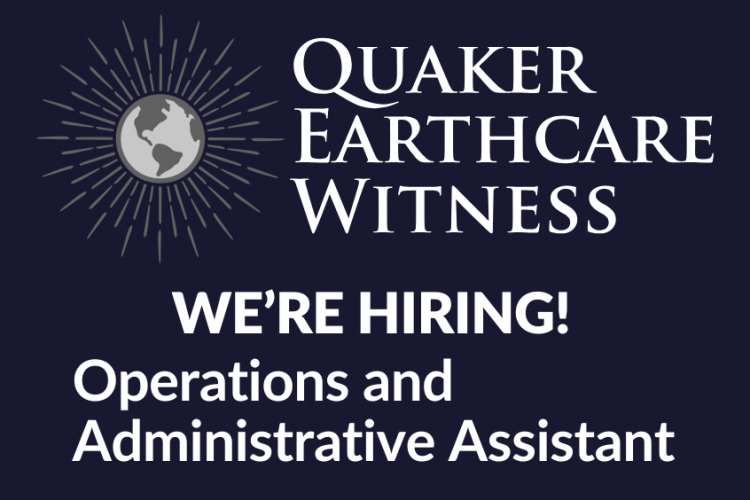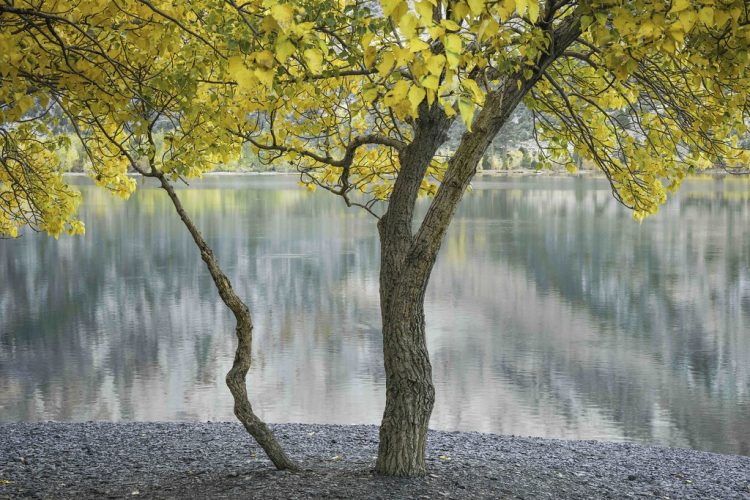Letters from Our Readers
January 14th, 2013
R. Rajagopal writes,
There were two articles about the UN in BeFriending Creation, Jan-Feb 2013.
Oliver Robertson, from QUNO Geneva, wrote about the Doha Conference. He is not able to do what Quakers in UN offices have always done; namely, invite people of differing viewpoints, set the opportunity for frank exchange, and in the course of discussion help to reach into a deeper place to find commonality. His phrases include, “we might move to action, we might continue to observe and consider, and we might not to carry on,” and “building relationships is exceptionally difficult when negotiations are based in their national capitals and come together only a few times a year or two weeks of intense negotiations.”
Mary Gilbert, QEW Representative to the UN, also wrote about UN, but in New York. Some phrases from her report are “draft contained language only from select nations and from the corporate world”; “a lot of good in earlier drafts had been deleted”; “but in general it is a disappointment for civil society”; “WEF sees that most decisions … are being made by multinational corporations, which are beyond the jurisdiction of governments”; “their proposals would put corporations formally in charge of governance on global exchange in small groups to cultivate mutual respect and consider problems that cross state boundaries. Oliver Robertson says, “It could be that this is not the way Friends are called to witness to climate change and that not everything that needs to be done, needs to be done by Quakers.” A new approach for Quakers to disseminate our values and processes about the common good needs to be discerned, one that is appropriate to these changing settings. We need to move forward in doing grassroots work with Quakers and cognate affiliates. We need to discuss what goods ought to be bought and sold and how their prices are set, determining whether they should be treated as public or common goods and services and maintained by society.
These decisions cannot be left to corporations. The role of the individual state remains crucial for the simple reason that we have no democracy to speak of above the state level. To look forward we need to look back on how we were in the forefront of changes in the past centuries.
Quaker Earthcare Witness is in contact with several other international Quaker organizations and I understand from Anne Mitchell, QEW General Secretary, that there are some discussions on coordinating programs and communicating with each other before issuing public statements or calls, to prevent different nuances appearing in different “epistles.” QEW could expand on that initiative by starting a Circle of Discernment to consider new ways to approach the changed world. Oliver’s sentence can be a start to this search. We are increasingly concerned about the human prospect and the future of caring for Earth, but we are at a crossroads as to how best to give expression to our voice. Government bodies and agencies seem to have gone increasingly deaf. How do we give witness in a world in which decisions with global impact are made by a thousand corporations who are beyond the reach of governments?
P. Rajagopal
Toronto Monthly Meeting 
February 18, 2013
Os Cresson writes,
I approve of members of QEW helping each other sort our way through the philosophies of religion and science as long as (a) we support each other even when the results of this sorting differ from our own, and (b) we make this support clear to each other and to visitors, and (c) we don’t ask QEW as an organization to endorse particular philosophies.
In the current issue of Friends Journal, Anthony Manousos asks us to be more open about our differences than in the past, to engage in an intra-faith dialogue, and to unite around practices rather than theology. Here is an excerpt from his article (quoted with permission from Friends Journal):
“Given this history of divisiveness, I can see why Friends are wary about identifying themselves as Christian or non-Christian. It seems safer, and saner, to keep Christ and God talk to a minimum. I am glad that many Friends are willing to bring up these concerns, however. I think we can be better Quakers if we are honest and admit our differences and have respectful dialogues about theological issues. We can learn much from each other when we open up and share our beliefs and spiritual experiences. And I think we can communicate with those in the ecumenical and interfaith movement, as well as our neighbors of other faiths, when we feel comfortable talking about theology among ourselves in a Friendly, non-exclusive way….Two years ago, I felt a leading to reach out to Evangelical Quakers. This came about when I heard the theologian Marcus Borg speak at the Friends General Conference gathering. I asked him, ‘What is the biggest challenge for interfaith dialogue?’ His response startled me. ‘The real challenge is not interfaith dialogue, but intra-faith dialogue.’ He went on to say that some of the bitterest misunderstandings are among people within a faith tradition….If Friends cannot unite around theology, could we instead unite around practices like peacemaking and social justice? George Fox said we need to be ‘salt’ and ‘light’…To be ‘salt and light,’ we need to transcend our differences. We need to share our stories, listen to those we disagree with, and be open to a change of heart. We also need to seek common ground wherein we can put our faith into practice.”
QEW can be a model of intra-faith dialogue, a pattern for others. We can unite in faith-based environmental action even as we differ in religion and science and in the specific types of action to which we are called.
Let us worship together, and practice collective discernment, and in other ways be Friends together. And then let us focus on the environmental issues, describing them in our own characteristic ways, supporting each other as we teach and learn about our environment and as we seek paths we are called to follow.
QEW can be a bridge among Friends who differ in religious and scientific philosophy. We can unite in our practices as Friends and in our actions as environmentalists. Let us treat our diversity as a benefit rather than a barrier, celebrating it openly and joyfully and frequently.
Os Cresson
Iowa City Monthly Meeting
Manousos, Anthony. “Are Quakers Christian, Non-Christian, or Both?” Friends Journal, 59(2), February 2013, pp. 19-22, Online at http://www.friendsjournal.org/are-quakers-christian-non-christian-or-both/.

